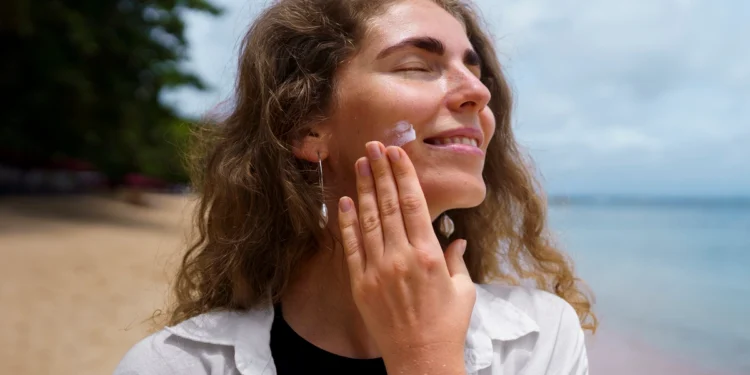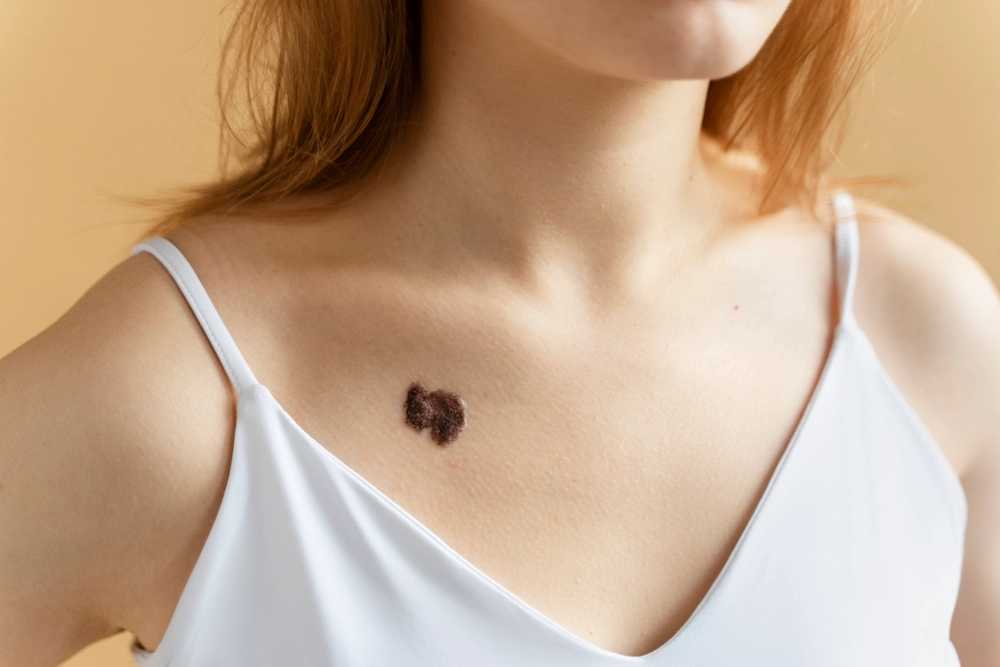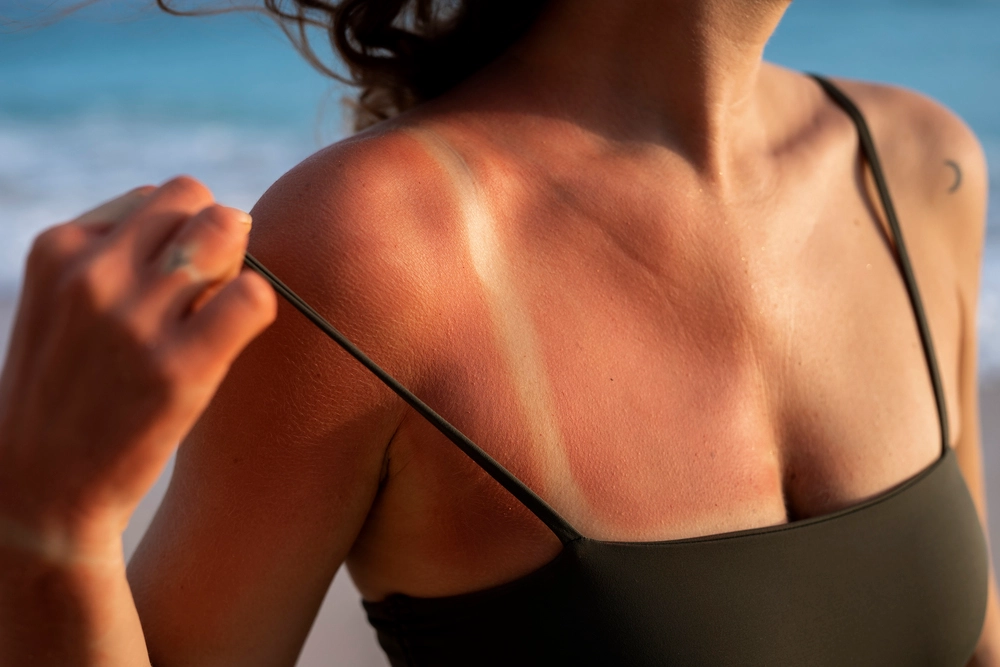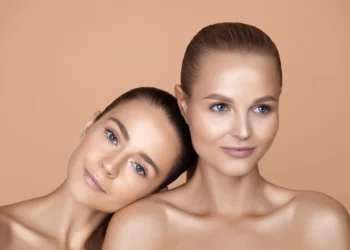Sunscreen is very important for our skin. Admittedly, it is just an extra but an extra that is very important. For anyone who spends time outdoors, even on a cloudy day or in the winter, sunscreen is a valuable tool in maintaining healthy skin. Sunscreen protects our skin from ultraviolet (UV) rays emitted directly by the sun. These can damage skin both in the short- and long term. So what makes sunscreen so important? How exactly does it work? What kind of benefits do we derive from using it? And what are some tips on selecting and applying sunscreen effectively?
Table of Contents
Why Do We Need Sunscreen?
The sun emits several rays of different types, but the following rays do more harm to our skin.
1. Ultraviolet A(UVA).
2. Ultraviolet B(UVB).
What does each of these rays do and why do you need protection?
Now let’s discuss what these rays individually do.
Firstly, UVB rays penetrate the outskins more than UVA rays. This means that UVB rays cause serious harm to our skin and capsules to prevent it.
Secondly, UVA rays also penetrate the outskins and this ray is not as responsible for skin cancer as UVB but if you work under the sun for a long time, these rays will make your skin dry and you must use sun-tan lotion.
Finally, for protection from these rays, It is recommended to use sun lotion with high
SPF rank. However, for people who have light skin, it is better to avoid anytime going out in the sun even by using special creams because their skin may be more likely to catch cancer.
UVA Rays: These penetrate the deepest into the skin and are primarily responsible for ageing skin. They can cause wrinkles, fine lines, and sunspots. Though UVA rays couldn’t give you a sunburn, you do need to protect yourself against them because they can penetrate clouds and windows. Pretty soon they’re going to be able to penetrate any surface. It looks like you’re in for some damage indoors and out, especially on a cloudy day.
UVB rays: These penetrate the epidermis, the outer layer of your skin, and are the primary cause of sunburn. UVB rays vary in intensity depending on the time of year and time of day and can cause direct damage to cells, which over time has been associated with skin cancers.
These rays cause skin cancers when sustained exposure over time is involved. The deadliest form of skin cancer, melanoma is the most commonly encountered form of all cancers. Sunglasses reduce eye damage and squinting. One of the simplest and most effective ways of decreasing your risk factors is to use sunscreen.
How Does Sunscreen Work?
Sunscreens work by forming a layer on the skin that absorbs or reflects away UV rays before they can be absorbed by the skin and cause damage. There are two main types of sunscreens:
Physical (or Mineral) Sunscreens: these contain either zinc oxide or titanium dioxide as active ingredients. The zinc/titanium oxide particles sit on top of the skin, effectively preventing sunlight from reaching the skin by reflecting it away. These sunscreens start working as soon as you use them.
Chemical sunscreens: these are set to work after application by absorbing UV light such as oxybenzone, and avobenzone– which converts UV to heat, and the skin dispatches it. Chemical sunscreens need 15-20 minutes to work after application.
It’s quite possible that both of these can work well for you, depending on your skin type and potential sensitivities. One could argue that physical sunscreens are better for sensitive skin because it’s less likely that someone will be allergic to them.
Key Benefits of Using Sunscreen
a. Reduces the Risk of Skin Cancer:
Wearing sunscreen every day reduces your risk of developing skin cancer, including melanoma, especially if you have a family history of skin cancer, if your skin is light or if you spend a lot of time outdoors.
b. Prevents Sunburn:
Sunburn isn’t just an unpleasant sensation, it tells us that skin cells have been damaged. Sunburned skin heightens our chances of skin cancers later in life.
c. Maintains Even Skin Tone:
Occasional sun exposure can produce dark spots and pigmentation, particularly if you have sensitive skin, these can be difficult to treat and may become permanent. Sunscreen helps to prevent these dark spots, plus it keeps your skin looking even.
d. Slows Down Skin Aging:
The sun makes you age faster. This contains UV rays that help to break down collagen, a protein that makes your skin firm and elastic. If you use sunscreen, it will keep your skin free of wrinkles and fine lines by protecting it from the sun.
How to Choose the Right Sunscreen
Shopping for sunscreen? You might be overwhelmed by all the jargon. Which type will help avoid cancer? Here’s a quick guide to help you shop.
SPF (Sun Protection Factor): SPF indicates the amount of protection in terms of UVB rays. Dermatologists recommend at least SPF 30. In technical language, SPF 30 typically blocks 97 percent of UVB rays, and SPF 50 blocks around 98 percent. The greater the number, the more protection, though no sunscreen blocks every single ray.
Broad Spectrum: the meaning here is that the sunscreen protects against both UVA and UVB rays for a more complete protection. What you want to see on the label is a reference to protection against both UVA and UVB, because that’s your assurance that you are going to be protected from the burning rays as well as the ageing rays.
Water Resistance: If you’re going to swim or sweat, look for water-resistant sunscreen. Water-resistant sunscreen is not the same as waterproof, so you still need to reapply after swimming or heavy sweating.
Formula: Sunscreens are available in the form of lotion, cream, spray or gel. Creams are good for the face while it’s useful for dry skin areas. Sprays are best for easy application on big areas of the body but be careful that it’s easy to miss some spots.
How to Apply Sunscreen Properly
To properly protect yourself from sun damage, it’s essential to apply sunscreen correctly. Here are some important steps to follow:
1. Use Enough Sunscreen: Most people don’t apply enough sunscreen. For your face, use at least a pea-sized amount, and for your body, aim for about an ounce (roughly the amount in a shot glass).
2. Reapply Frequently: Apply sunscreen every two hours, and reapply after swimming, sweating, or towel-drying, even if the sunscreen is water-resistant.
3. Don’t Forget Key Areas: Make sure to cover your ears, neck, back of your hands, and tops of your feet, as these areas often go without sunscreen. Apply generously to all exposed skin.
4. Make It a Daily Habit: Apply sunscreen every day, even on cloudy days. Surprisingly, 80% of UV rays can penetrate clouds.
5. Pair with Other Sun Protection: Sunscreen is just one part of sun protection. Remember to wear sunglasses, and a hat and seek shade during peak sun hours, typically between 10 a.m. and 4 p.m. By following these steps, you can better protect your skin from sun damage.
Common Myths About Sunscreen
Myth 1: You Don’t Need Sunscreen on Cloudy Days. Remember from above that UV rays can still penetrate clouds, so the sun can damage you even on overcast days.
Myth 2: Dark Skin Doesn’t Need Sunscreen.
Melanin in darker skin may provide some natural protection, but it is not sufficient to prevent UV damage or skin cancer. Sunscreen is equally useful for everyone.
Myth 3: Sunscreen is only for Summer.
Snow, which reflects UV rays, can magnify UV risk, especially in the winter. Even if you’re outside, you still need sunscreen.
Myth 4: SPF in makeup is enough.
Some make-up provides SPF sun protection, but usually not as much, or in the right places, to be very effective, and you might as well go with a dedicated sunscreen underneath your make-up.
The Environmental Impact of Sunscreen
Certain sunscreens contain ingredients that are toxic to marine life, particularly coral reefs. The chemicals oxybenzone and octinoxate are known to lead to coral bleaching. If you’re going to the beach, use sunscreens that are reef-safe, that don’t contain these chemicals.
Final Thought
Sunscreen is a Simple, Lifelong Investment in Skin Health. Using sunscreen may just be the easiest and most cost-effective way to protect your skin and your overall health. Sunscreen helps you avoid sunburn, slows the ageing process, lowers the risk of skin cancer, and contributes to a more even skin tone. Sunscreen works best, however, when you use and apply it in the right way. Making sunscreen part of your routine will help you get that healthy skin investment.











